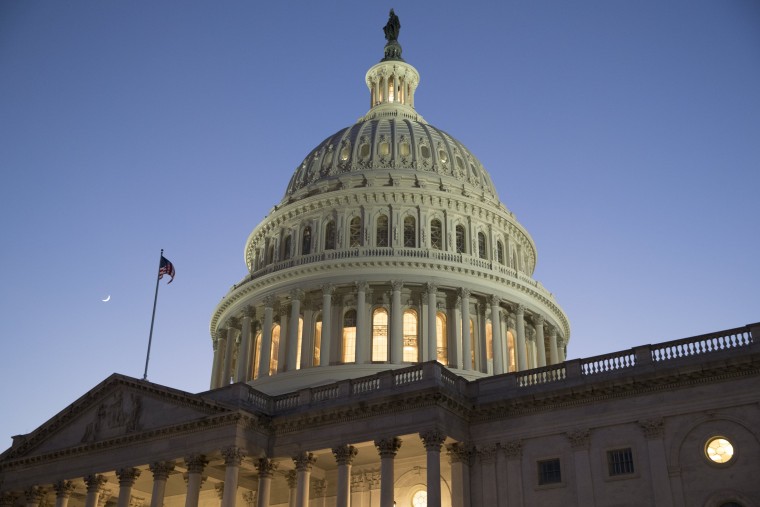About a year ago, with U.S. intelligence officials warning of future foreign attacks on American elections, the Washington Post's Greg Sargent reported on a formal request from the Democratic Congressional Campaign Committee to its Republican counterpart, seeking a "united front" against any Russian efforts to undermine the 2018 midterm elections.
As regular readers may recall, the basic idea was pretty straightforward: if the parties agreed in advance not to use hacked materials, it would signal to Russian operatives that there's no point in trying to steal more campaign documents.
The initial round of talks, however, didn't go well. In July 2017, Republicans rejected the outreach, questioning the Dems' sincerity.
Earlier this year, Democrats gave the effort another try, but a spokesperson for the National Republican Congressional Committee told The Atlantic that the party hadn't responded due to a lack of "trust."
Eventually, however, the two sides began meaningful talks. The New York Times reports today that those talks have now failed.
House Republicans withdrew on Thursday from negotiations with Democrats over a pact that would have effectively barred both parties from using hacked or stolen material on the campaign trail this fall.Leaders of the National Republican Congressional Committee, the campaign arm of House Republicans, and their counterparts at the Democratic Congressional Campaign Committee had labored for much of the summer over rules that would have governed the way the congressionally run committees and their candidates treated material like the thousands of pages of damaging Democratic documents stolen and leaked by Russian hackers in 2016.
Naturally, both sides are blaming their rivals, but it's worth highlighting the sticking point that contributed to the negotiations' collapse.
The Times' report added that the party officials were "close" to reaching an agreement, but "a key difference of opinion remained over how to deal with hacked or stolen material that entered the public domain through news or other sources."
In other words, if Russia stole Democratic campaign materials and offered it to the National Republican Congressional Committee, under the proposed agreement, Republicans wouldn't use the information in their attack ads. But if Russia stole Democratic campaign materials and offered it to a conservative media outlet, which then published the information, Republicans would consider the information fair game.
For Democrats, this would defeat the purpose of the plan. If the whole endeavor was about removing incentives, then the parties had to agree not to use stolen materials -- regardless of whether they'd been laundered through the media or handed to partisan operatives directly.
According to the Times' reporting, that was a bridge too far for the NRCC. That said, officials from both parties' campaign committees said they have no interest in receiving hacked campaign documents.
Election Day is 59 days away. Watch this space.
